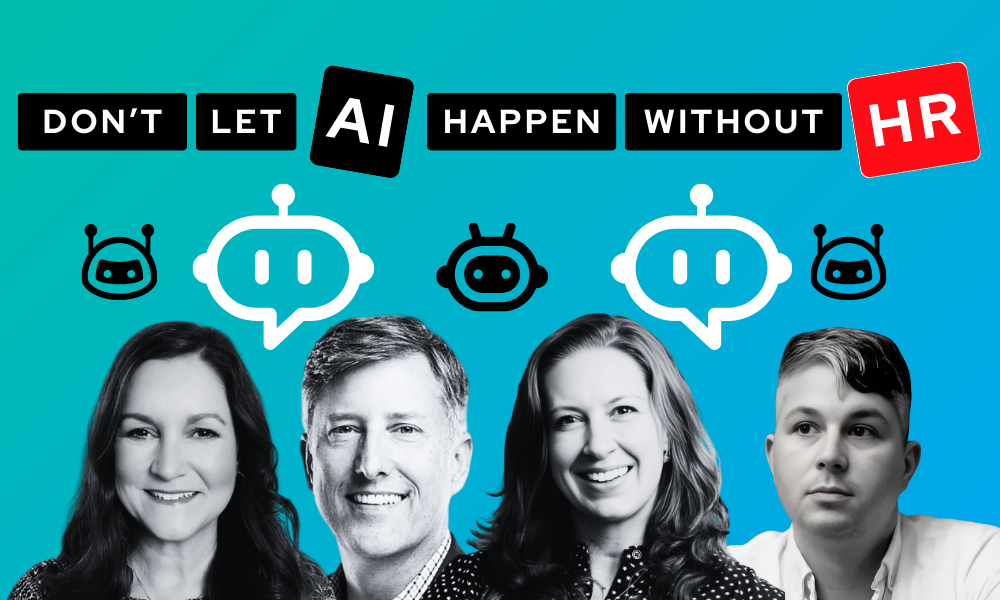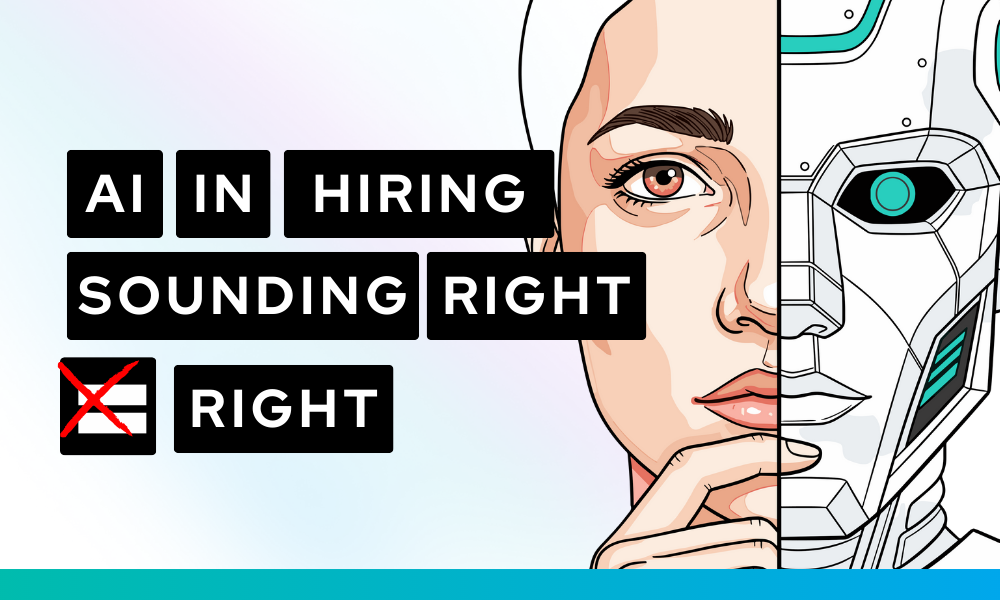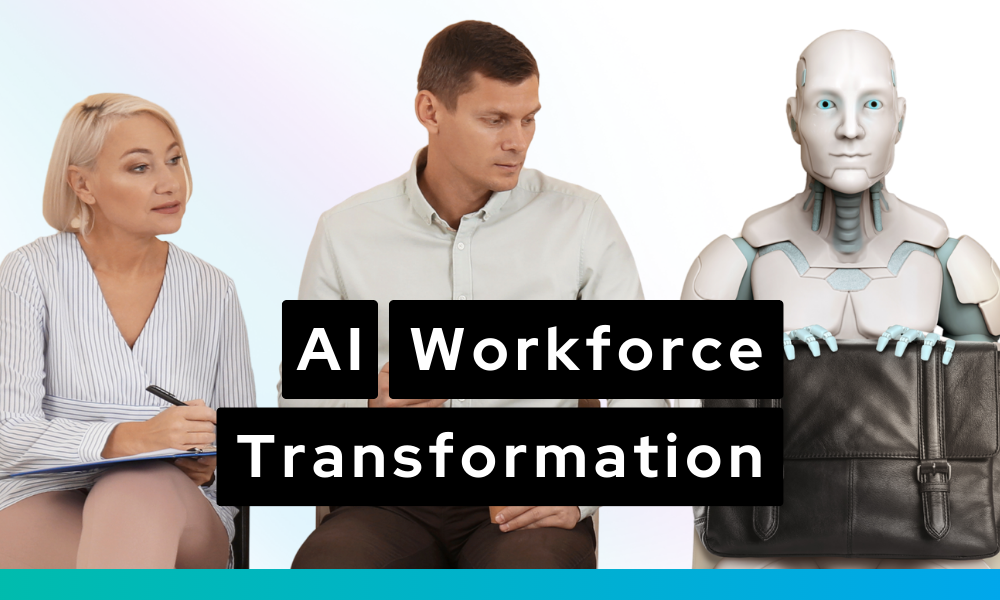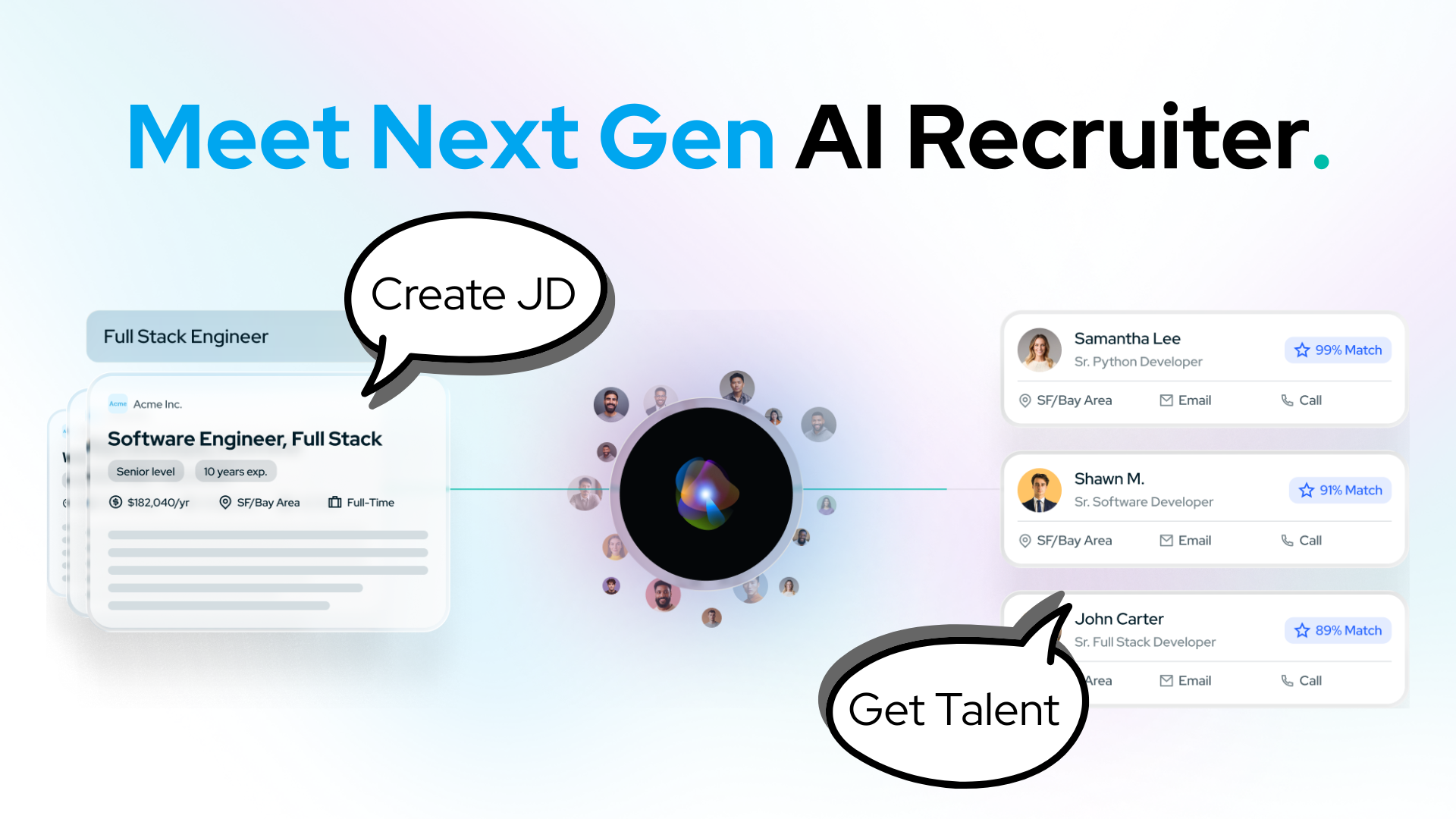
Make talent quality your leading analytic with skills-based hiring solution.

The future of work is being shaped by AI—fast. But who’s making the critical decisions? Too often, it’s not HR.
That needs to change.
That’s why we partnered with Unleash to host a webinar, Human Leadership in the AI Era: HR’s Evolving Mandate. The goal? To spotlight why HR must take the lead—not as a stakeholder, but as a strategist—driving a human-centered, business-aligned AI roadmap.
If you’re in HR or TA, here’s why this conversation matters:
AI transformation is already underway—across industries and core business functions. From hiring to learning to operations, it’s being implemented at scale—often in silos. The pace is accelerating, but most organizations are still reacting, not leading. And in too many cases, HR isn’t even at the table. That’s the real risk.
HR must step up—because no other function is better positioned to lead.
As panelist Cathy Peterman put it, the first step is building confidence and fluency:
“It’s our responsibility as HR practitioners to become literate and really understand what this looks like—because that helps us get a seat at the table.”
This transformation isn’t just technical—it’s deeply human. And designing the future of work requires leadership from those who know talent best.
That’s where HR comes in.
These leaders brought frontline experience, critical insights, and honest takes on what it takes to lead AI adoption with a people-first mindset.
AI is entering HR fast—but how it’s perceived depends on where you sit. When asked to describe the current state of AI in one word, the panelists offered striking perspectives:
Kelly Cartwright: “Frenetic… There’s chaotic energy surrounding all things AI. It’s noisy, and it’s hard to cut through what’s real and what’s marketing.”
Cathy Peterman: “Transformative… It’s changing how I work, how companies operate.”
Ben Walker: “Nascent… Only 5% of organizations I’ve spoken to have seen real impact so far.”
A recent McKinsey report backs this up: while 71% of companies use generative AI in some business function, most haven’t yet realized enterprise-level gains.
Takeaway:
AI’s HR adoption is still early—and noisy. As Kelly noted, “Everyone’s experimenting, but not everyone’s asking: what problem are we solving?” HR must focus on clarity and alignment before chasing AI trends.
AI is being embedded across operations, but in many companies, HR is stuck on the sidelines. That’s a missed opportunity.
“HR has always had a seat at the table—but now we have to earn our voice in AI decisions,” said Kelly Cartwright. “That means understanding the tech, not just the impact.”
The panel made it clear: HR needs to drive—not defer—AI strategy.
Cathy Peterman: “We don’t need to be experts, but we can’t sit back.”
Ben Walker: “HR needs to embrace adaptability. AI is evolving too fast to resist.”
Yet only 28% of HR leaders say they’re actively implementing generative AI, according to SHRM.
Takeaway:
“AI doesn’t wait for you to be ready,” Kelly added. “If HR doesn’t lead the conversation, someone else will—and it won’t be from a people-first perspective.”
Amid the hype, real wins are happening. Wayfair piloted AI to support performance reviews—and it worked.
Cathy: “78% of managers said it saved them time. 80% said reviews were more fair and accurate.”
Ben Walker added: “We’ve seen clients cut time-to-fill by up to 50%. And 56% reduction in unwanted turnover. That’s huge.”
Kelly brought a systems view: “These aren’t just efficiency gains. When AI removes friction, it gives people back capacity—for coaching, development, real leadership.” She emphasized the importance of measuring real outcomes: “Don’t just track usage. Track quality, bias, fairness. Otherwise, you’ve just automated noise.”
Takeaway:
Start small, solve real problems, and measure what matters. As Kelly said, “If your pilot doesn’t give you insight—not just output—it’s not a success.”
The pressure to adopt AI is real—but so is the risk of getting it wrong. The panel addressed this head-on.
Ben Walker flagged growing workforce anxiety: “You have to communicate—even if you don’t have all the answers yet.”
Cathy reinforced the importance of transparency: “If we’re not honest with employees, we create fear instead of trust.”
Kelly emphasized accountability:
“Ethics can’t be a disclaimer in the procurement process. HR has to ask: Who built this? Who trained it? How are we testing it for bias?”
SHRM found that while 71% of HR pros worry about AI bias, only 35% have a process to review it.
Takeaway:
Ethical AI isn’t optional. “We’re the function that owns fairness,” Kelly said. “If we’re not at the front of AI governance, we’re not doing our jobs.”
The panel’s closing message was consistent: don’t try to solve everything at once.
Cathy: “Challenge yourself to use AI six times a day—just to explore how it might help you.”
Ben: “Start with a clear pain point. Solve it. Then scale.”
Kelly: “Don’t wait for a three-year roadmap. Use what you learn today to plan tomorrow.”
Kelly also urged teams to build AI reflexes:
“Your first few months with AI shouldn’t be about optimization. They should be about learning how it thinks—and how that impacts your decision-making.”
Takeaway:
You don’t need a moonshot. You need momentum. Start with experiments. Share wins. And build the muscle to lead transformation from the inside out.
“AI doesn’t need to change your life to be worth it.” – Kyle Lagunas
It just needs to solve real problems—today.
Looking to lead AI transformation in your organization? Start with clarity, curiosity, and courage. And if you’re in HR, remember:
You’re not a bystander. You’re the change agent. Catch the on-demand webinar with Unleash here.

AI can sound responsible while getting the logic wrong. Most conversations about AI in hiring fixate on bias, hallucinations, or compliance. That is where lawsuits land and where headlines cluster. Those risks are real. They are also incomplete. Often, the quieter the problem, the more dangerous it becomes. Many AI systems are better at sounding […]

TL;DR AI is no longer something people use. It’s doing the work. And Gen Z notices this first because they sit closest to the tasks AI replaces most quickly. That concern is not resistance. It is pattern recognition. AI Workforce transformation is happening. Fast! HR does not own AI. But when AI decisions are made […]

For decades, recruitment has looked the same. Recruiters still spend hours sourcing candidates, scheduling interviews, conducting screenings, and managing endless administrative work. The process is slow, inconsistent, and no longer sustainable in a highly competitive talent market. This is exactly the problem AI Recruiter was built to solve. What if hiring could run itself? The […]